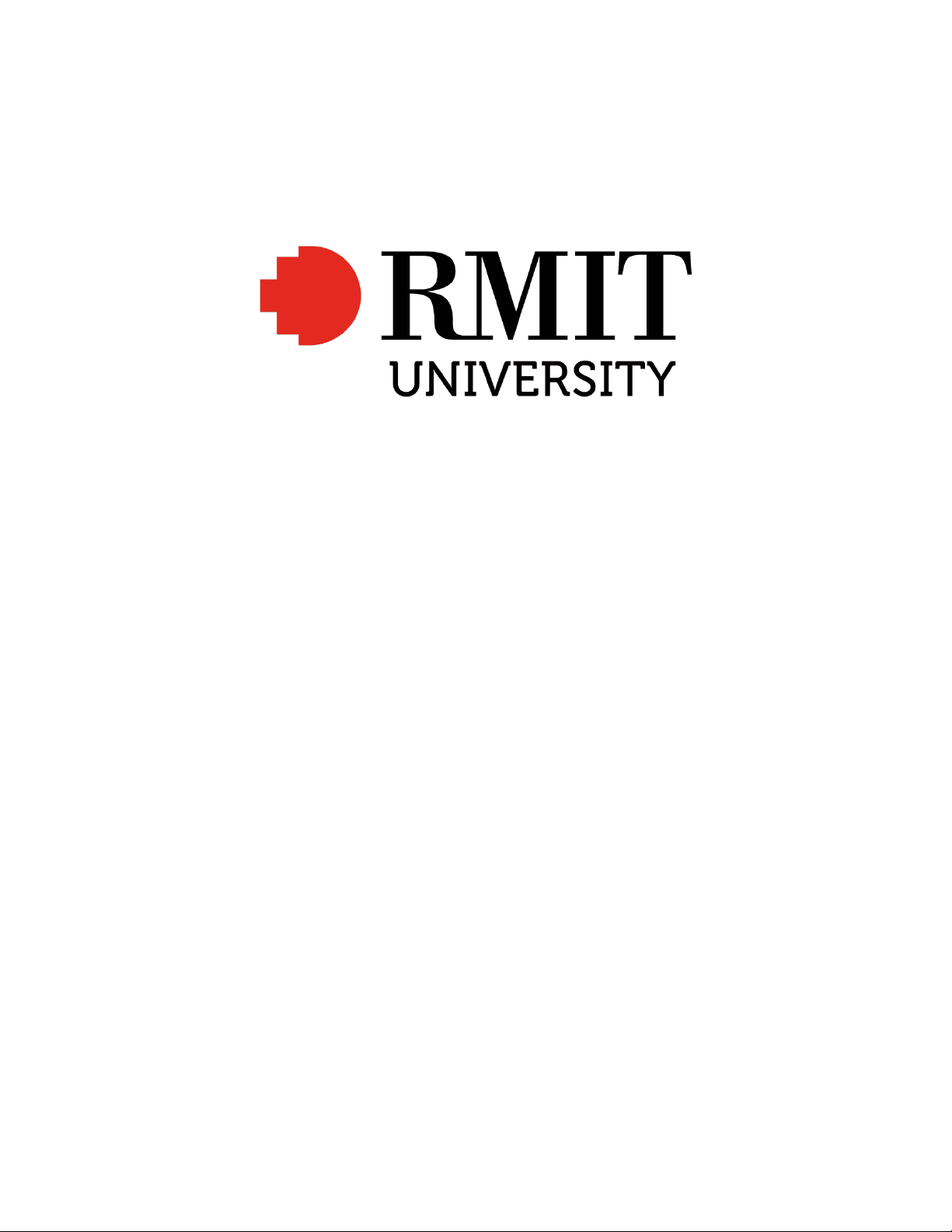
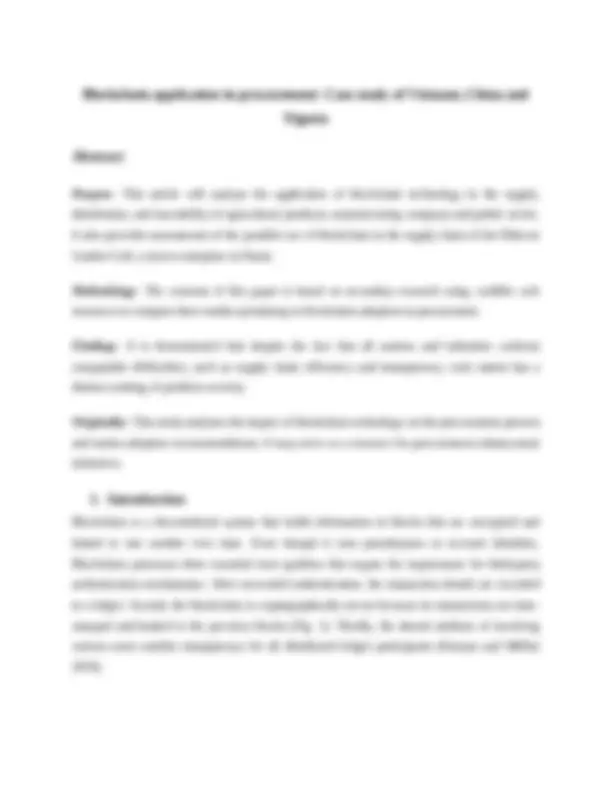
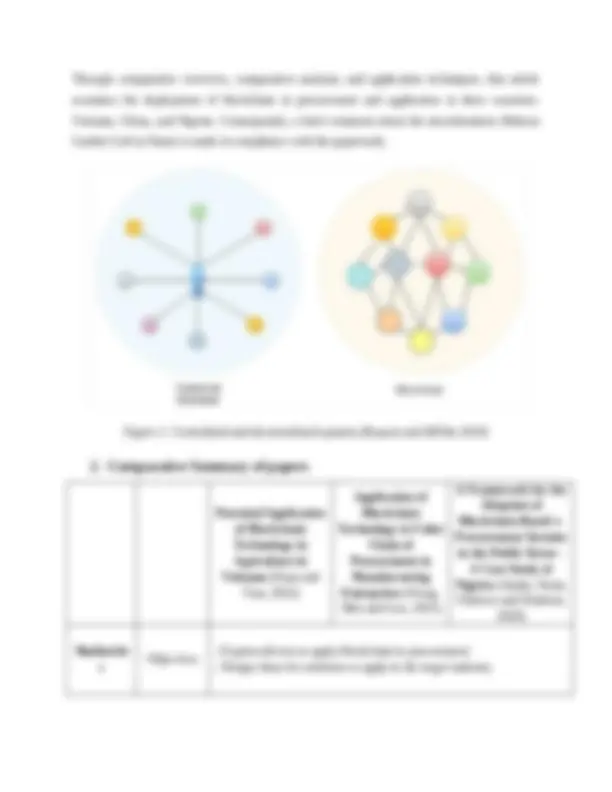
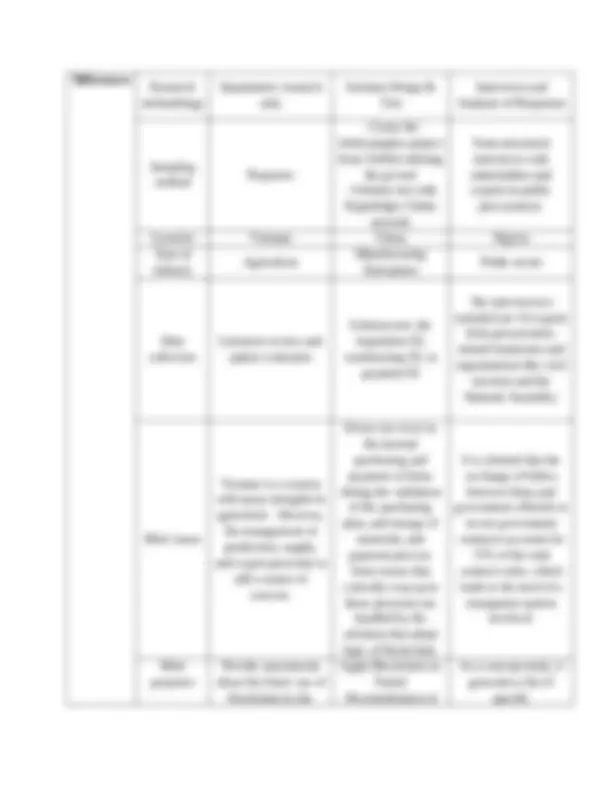
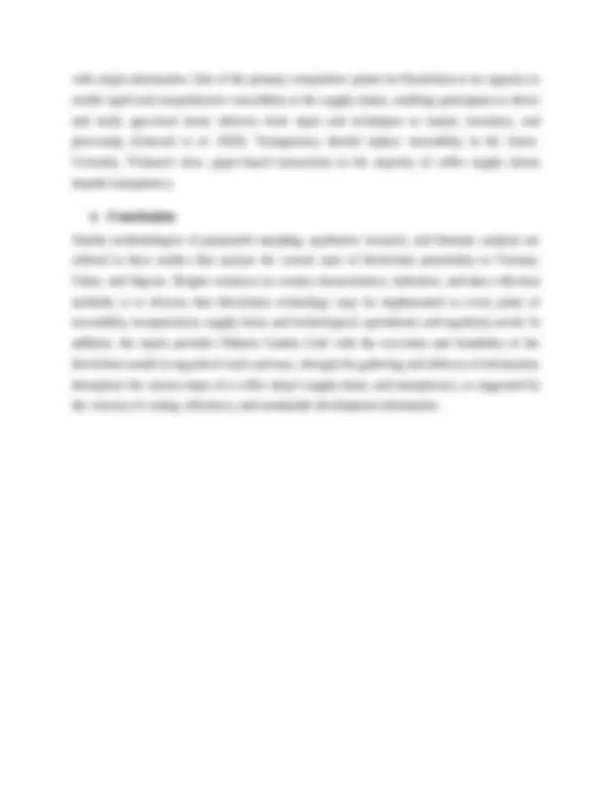
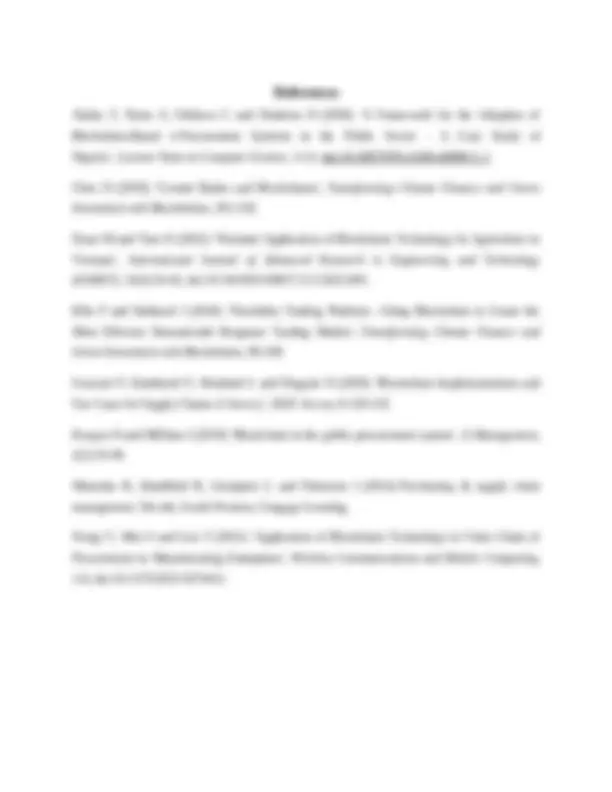


Study with the several resources on Docsity

Earn points by helping other students or get them with a premium plan


Prepare for your exams
Study with the several resources on Docsity

Earn points to download
Earn points by helping other students or get them with a premium plan
Community
Ask the community for help and clear up your study doubts
Discover the best universities in your country according to Docsity users
Free resources
Download our free guides on studying techniques, anxiety management strategies, and thesis advice from Docsity tutors
This article will analyze the application of blockchain technology in the supply, distribution, and traceability of agricultural products, manufacturing company and public sector. It also provides assessments of the possible use of blockchain in the supply chain of the Hideout Garden Café, a micro-enterprise in Hanoi.
Typology: Assignments
1 / 9

This page cannot be seen from the preview
Don't miss anything!






Through comparative overview, comparative analysis, and application techniques, this article examines the deployment of blockchain in procurement and application in three countries: Vietnam, China, and Nigeria. Consequently, a brief comment about the microbusiness Hideout Garden Café in Hanoi is made in compliance with the paperwork. Figure 1: Centralized and decentralized systems (Kosyan and Mil'kin 2019)
Potential Application of Blockchain Technology in Agriculture in Vietnam (Doan and Tran, 2022) Application of Blockchain Technology in Value Chain of Procurement in Manufacturing Enterprises (Wang, Men and Guo, 2021) A Framework for the Adoption of Blockchain-Based e- Procurement Systems in the Public Sector - A Case Study of Nigeria (Akaba, Norta, Udokwu and Draheim,
Similaritie s Objectives
Differences Research methodology Quantitative research only Solution Design & Test Interviews and Analysis of Responses Sampling method Purposive
Using blockchain technology to manage the provenance and transparency of these and other agricultural goods is advantageous. China Firstly, the present situation of blockchain study and the concepts of blockchain are explained, followed by an analysis of the value chain management of blockchain- based internal procurement process. The solution is subsequently implemented using the Hyperledger Fabric platform. The completed solution is then subjected to testing, including chain code layer testing and business layer testing. The use of blockchain to the procurement value chain can lessen the likelihood of employees creating bogus accounts and transactions. Before a transaction can be recorded in the blockchain ledger, it must be approved by all departments engaged in the transaction. Nigeria The research investigates the current public purchasing process in order to comprehend the overall processes, difficulties, and obstacles that must be overcome while presenting a blockchain-based framework. The existing procurement procedure does not effectively encourage citizen participation. An extra on-chain activity is suggested for this problem so that citizens may involve in project tasks. The majority of budgeted projects are poorly undertaken and controlled. Regarding that, the paper proposes an extra on-chain activity that creates the appraisal of finished products more democratic and open by providing citizens with the ability to trace initiatives. Recommendations for Hideout Garden Café Hideout Garden Café (HGC) is a microbusiness that manufactures products with an attainable price range. Their main components are coffee beans and tea leaves. The procurement strategy is single sourcing, although the procedure may involve procurement risks. In recent years, the sustainability performance of the global coffee business has been under increased criticism (Ellis and Hubbard 2018). As suggested in the first article, which discusses the use of blockchain technology in Vietnam's agriculture, HGC may consider implementing blockchain technology as it expands to enhance the traceability of café ingredients’ supply chain and provide consumers
with origin information. One of the primary competitive points for blockchain is its capacity to enable rapid and comprehensive traceability in the supply chains, enabling participants to detect and study agro-food items' delivery from input and techniques to transit, inventory, and processing (Gonczol et al. 2020). Transparency should replace traceability in the future. Currently, Vietnam's slow, paper-based transactions in the majority of coffee supply chains impede transparency.
Similar methodologies of purposeful sampling, qualitative research, and thematic analysis are utilized in three studies that analyze the current state of blockchain potentiality in Vietnam, China, and Nigeria. Despite variances in country characteristics, industries, and data collection methods, it is obvious that blockchain technology may be implemented at every point of traceability, transportation, supply chain, and technological, operational, and regulatory needs. In addition, the report provides Hideout Garden Café with the execution and feasibility of the blockchain model in regards of track and trace, through the gathering and delivery of information throughout the various steps of a coffee shop’s supply-chain, and transparency, as suggested by the veracity of costing, efficiency, and sustainable development information.